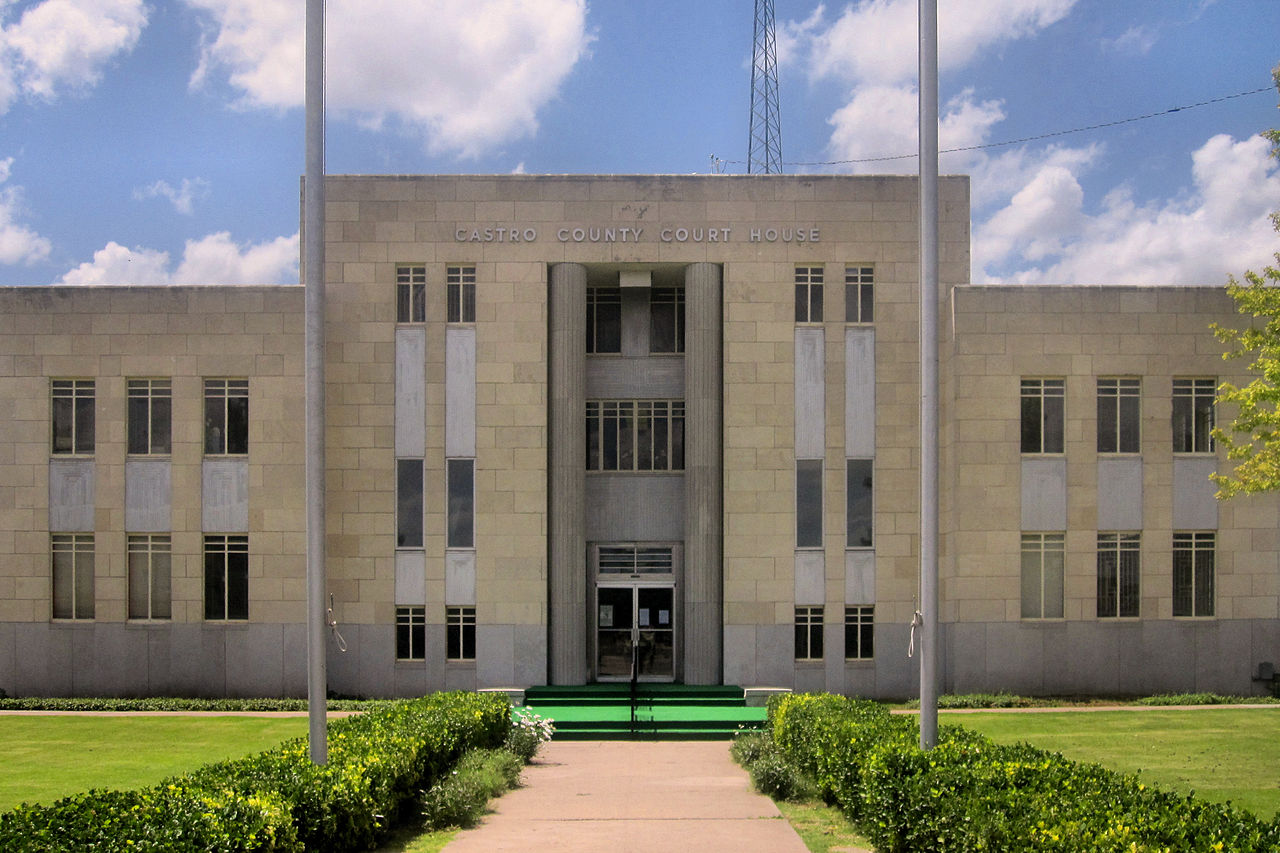Texas Writs of Garnishment to Collect Judgment Liens from Castro County, Texas
Busby & Associates is a leading law firm that is dedicated to helping clients defend, collect, and enforce judgments. Our primary focus is on garnishing bank accounts and financial institutions, but we also offer legal services for consumer bankruptcy, family law, and divorce matters. Our team can assist both obligors and obligees with child support lien collections and defense, and domesticating foreign child support liens in Castro County, Texas. If you’re a judgment creditor who is facing challenges in recovering your judgment from a debtor in Castro County, Texas, we’re here to help you succeed.
Texas Judgment liens in Castro County
Properly recording and indexing an abstract of judgment can create a lien on all nonexempt real property owned by the judgment debtor in Castro County. To fix the lien, the abstract must be filed in every county where the debtor has property. The lien remains valid for ten years from the date of recordation and indexing, provided that the judgment does not become dormant. Only final judgments, not interlocutory ones, can form the basis of a lien. However, an abstract of judgment can still be filed if the judgment is being appealed or a supersedeas bond has been filed. If the creditor establishes a lien before the appeal, the lien remains valid even if the judgment is affirmed. These rules only apply to Texas state trial court judgments, and for the enforcement of judgments from other states and foreign countries, the judgment must first be domesticated in Texas before an abstract can be filed.
Texas Abstract of Judgment
Abstracting a judgment in Texas involves following certain rules and procedures. In general, the judge, justice of the peace, clerk of the court, judgment creditor, agent, attorney, or assignee can prepare the abstract for judgments rendered in most courts. However, in small claims and justice courts, the judgment creditor is not permitted to prepare their own abstract. It’s also important to note that abstracts of federal court judgments require certification from the clerk of the court. Those who need to abstract their judgment lien in Castro County, Texas can visit the County Clerk’s office at 100 E Bedford St #101, Dimmitt, Texas 79027.
Contents
An accurate abstract of judgment in Texas should contain specific information. This information includes the names of the plaintiff and defendant, the defendant’s birthdate (if available), the defendant’s driver’s license and social security numbers (if available), the suit number, the defendant’s address or citation information, the date the judgment was rendered, the amount of the judgment and balance due, any child support arrearage, and the interest rate. Additionally, the abstract must include the mailing address for each plaintiff or creditor, and it must be verified by the creditor’s attorney. A penalty filing fee will be imposed if the mailing address is not included. Declarations that are not verified are not allowed.
Recordation of Judgment Liens Abstract
Castro County is the proper location for recording the abstract of judgment if the debtor has real property in the county. The Castro County clerk receives the abstract and documents it in the county’s real property records, specifying the date and time of recording. Additionally, the clerk must enter the abstract in the alphabetical index to the real property records, which shows the names of the plaintiff and defendant and the page number where the abstract is recorded.
Abstracts of Domesticated Judgment Liens.
The Uniform Enforcement of Foreign Judgments Act and the Uniform Foreign-Country Money Judgments Recognition Act permit foreign judgments to be enforced in the same manner as local judgments. The foreign judgment holder seeking to domesticate the judgment in Texas must fulfill the lien requirements.
Property To Which Lien Attaches Non-Exempt Real Property
The judgment lien encompasses all nonexempt real property owned by the defendant in Castro County, where it is recorded.
Keeping the Judgment and Judgment Lien Alive
1. Non-governmental Judgments
Following the date of recording and indexing, the judgment lien will persist for 10 years, unless the judgment becomes dormant, in which case the lien will end. To maintain an active judgment, two conditions must be satisfied: (1) keep the judgment valid and (2) obtain and record a new abstract of judgment. A judgment becomes dormant if no writ of execution is issued within a decade of its creation, but it can be revived through scire facias or a debt action within two years of dormancy.
2. State or State Agency Judgments.
Dormancy does not apply to judgments made by the state or a state agency, and a valid abstract of judgment can establish a lien that lasts for 20 years from the filing date. Furthermore, the lien can be extended for another 20 years by submitting a renewed abstract of judgment.
3. Political Subdivisions.
Judgments of political subdivisions may become dormant under dormancy statutes, but the revival statute, Civ. Prac. & Rem. Code § 31.006, allows the political subdivision to revive the judgment. Therefore, the judgments of political subdivisions can be revived at any time, not just within two years of dormancy.
4. Child Support Judgments.
All child support judgments, regardless of when they were rendered, are exempted from the dormancy statute by Subsection (c) of § 34.001 of the Civ. Prac. & Rem. Code.
Property Subject to and Exempt from Execution.
1. Property Subject to Execution.
Unless exempted by the constitution, statute, or any other rule of law, the property of the judgment debtor is liable to be seized by execution. Generally, the following kinds of property are not exempt: a. Cash on hand or in checking or savings accounts; b. Pleasure boats and their motors and trailers; c. Collections like stamps or coins; d. Investments such as stocks, bonds, or notes; e. f. Airplanes. Corporations do not have any exempt property.
2. Property Exempt from Execution.
The following categories of property are exempt from execution, regardless of whether the debtor is a family or a single adult: a) the homestead; b) personal property of various categories as specified by law, valued at up to $100,000.00 for a family or $50,000.00 for a single adult without family ties; c) current wages for personal service (excluding child support payments) and unpaid commissions for personal service, limited to 25% of the $50,000/$100,000 aggregate limit; d) professionally prescribed health aids; e) worker’s compensation payments; f) cemetery lots held for the purpose of interment; g) property sold, mortgaged, or conveyed in trust by the judgment debtor, provided that the purchaser, mortgagee, or trustee can identify other property of the debtor that will satisfy the judgment; h) assets held in a spendthrift trust for the benefit of the debtor by a trustee; i) certain insurance benefits; j) specific savings plans, such as retirement benefits and health savings plans; k) college savings plans; l) consigned artwork that meets specific requirements.
WRITS OF GARNISHMENT.
The post-judgment garnishment is a means by which a judgment creditor can investigate the financial relationship between a third party and the judgment debtor to determine if any funds or property are owed to the debtor. If any debts are found, the creditor (garnishor) can obtain a garnishment judgment, which compels the third party (garnishee) to pay funds to the garnishor instead of the debtor.
Requirements to Issue
To garnish after judgment, specific prerequisites must be satisfied. Firstly, the creditor must have a valid and subsisting judgment against the debtor, and the judgment is considered final and subsisting from the date of rendition. Secondly, the debtor must not have filed an approved supersedeas bond to prevent execution on the judgment. Lastly, the creditor must affirm that, to the best of their knowledge, the debtor does not possess enough property in Texas that can be executed to satisfy the judgment.
Procedure for Securing Issuance Jurisdiction and parties
Remember that a post-judgment garnishment action is a separate legal proceeding from the main case it seeks to enforce. As an ancillary lawsuit, the third-party garnishee should be named as the defendant. It must be filed in the same court that delivered the judgment to be collected, albeit with a different cause number.
Service of the writ of garnishment/notice to judgment debtor.
To initiate the garnishment, the garnishee must receive the writ of garnishment, and the judgment defendant is not a required participant in the garnishment proceedings. Nevertheless, it is crucial to provide the defendant with a copy of the writ, the application, accompanying affidavits, and court orders promptly after serving the garnishee. The copy of the writ served to the defendant must clearly display the contents of the writ, using bold 12-point typeface, and in a manner that would be understood by a reasonably attentive person. Failure to give the judgment debtor property notice renders any judgment, other than one dissolving the writ, null and void.
Banks as Garnishees for Writs of Garnishment
Banks must be served with garnishment writs at the address of the registered agent indicated in the financial institution’s registration statement, as required by Section 201.102 or 201.103 of the Finance Code. Out-of-state financial institutions must follow state laws by designating an agent for process while submitting a registration application with the Secretary of State under Section 201.102. Texas financial institutions may appoint an agent for process by filing a statement with the Secretary of State as per Section 201.103.
Officer’s Return.
Compliance with the citation rules is necessary for the officer executing a writ of garnishment to make a valid return. As per Tex. R. Civ. P. 663, the judgment creditor must carefully scrutinize the return before obtaining a garnishment judgment, particularly in cases where the judgment is defaulted. Returns in garnishment proceedings are subject to the same rules as citations in general. Courts have considered returns fatally defective if they do not specify the method and location of service on a corporate garnishee.
Forms for the form and Practical Procedure
When you come across a bank account or other debt owed by the judgment debtor that is garnishable and decide that it is cost-effective, you must file an Application for Garnishment, along with a supporting affidavit signed by the judgment creditor’s attorney. The affidavit should include crucial information such as the original suit and judgment details, the garnishee’s name and officers for service, and any available account names and numbers.
Busby and Associates could potentially assist you in collecting your judgment on a contingency basis, provided it is from Texas. However, if the judgment is from another state with the judgment debtor in Texas, they will review it on a case-by-case basis, and a retainer may be required. In the case of a judgment debtor and/or judgment in Castro County, Busby and Associates can help you garnish a bank account or financial institution to recover the judgment amount.














